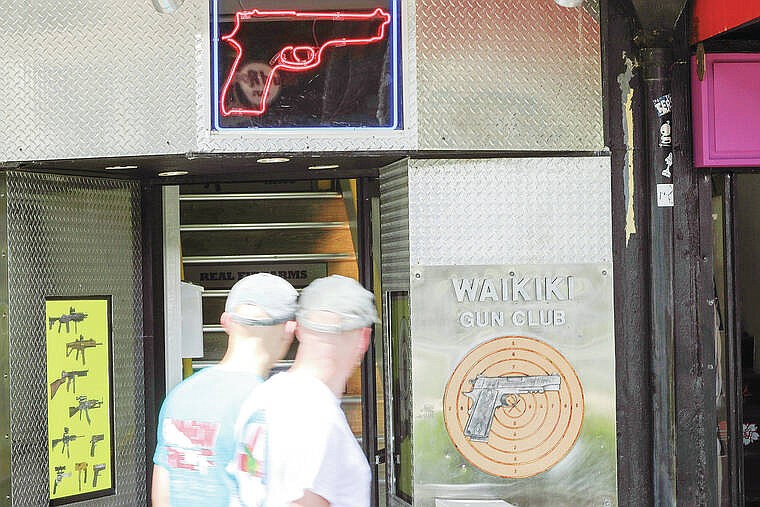Gun rights advocates in the U.S. have made considerable strides in winning state governments over to the concept of "constitutional carry."
The phrase refers to allowing citizens to carry a handgun in public without a license or permit.
More than half the states allow constitutional carry. Some limit it to concealed carry only. A few states still require a license or permit.
The U.S. Supreme has loosened state restrictions on keeping and carrying handguns over the past several years, but has never specifically addressed whether states can or cannot require a permit or license.
That may change.
In 2017, Christopher Wilson was arrested in Hawaii for carrying a handgun without a permit. He appealed to have the charges dismissed, citing his rights under the Second Amendment.
Last week, Hawaii's highest court ruled against him, saying he could indeed be prosecuted.
The state supreme court challenged the concept of "original intent" in interpreting the Second Amendment, saying times had changed since the nation's founding. The justices even suggested the nation's highest court had cherrypicked history in recent cases expanding gun rights.
"Judges are not historians. Excavating 18th and 19th century experiences to figure out how old times control 21st century life is not a judge's forte," Justice Todd Eddins wrote for the court. "History is messy. It's not straightforward or fair. It's not made by most. (Recent U.S. Supreme Court gun rights cases) show how the court handpicks history to make its own rules."
The court also noted the 1986 "Hawaiian Spirit Law" or "spirit of aloha" designed to foster peace, unity and community.
"The spirit of aloha clashes with a federally-mandated lifestyle that lets citizens walk around with deadly weapons during day-to-day activities," Eddins added. "The history of the Hawaiian Islands does not include a society where armed people move about the community to possibly combat the deadly aims of others."
It's doubtful Hawaii will have the last word on this. Wilson's attorneys are planning to appeal the case. And if the question of whether a state can require a license or permit to carry a handgun comes before the U.S. Supreme Court, the justices there are unlikely to show much faith in the aloha spirit.

